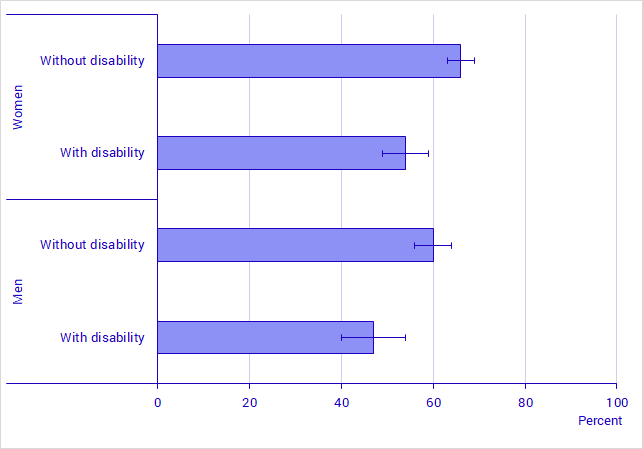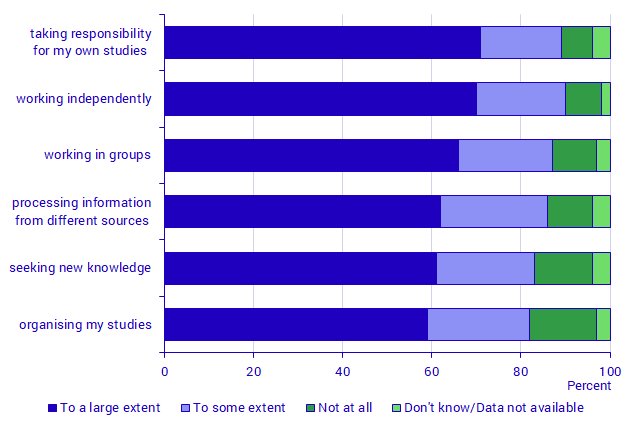Many women with a foreign background go on to higher education after folk high school
Arbete
1 jul 2020
Six in ten participants in the folk high school general course who acquired general entry qualifications to higher education studied in higher education at some time. With regard to persons with a foreign background in this group, 75 percent of the women and 60 percent of the men continued to higher education studies.
A new Statistical Report from Statistics Sweden, “Follow-up of the general course at folk high school”, describes the study situation at the general course and participants’ activities after completing the course. The report is based on a questionnaire survey carried out in spring 2020 addressed to participants who acquired general entry qualifications to higher education 1.5-2.5 years earlier.
An important objective of folk high schools is to offer education that works well for participants with disabilities. Among the responding participants, 30 percent had a disability. Around half of them went on to further study, which is a lower proportion than among participants without a disability.

Many feel that they received an adequate foundation for higher education studies
Barely two in three participants who studied in higher education considered that they acquired the skills needed for studies in higher education via their folk high school education. Women were slightly more positive than men. There were no differences between participants with or without disability. In addition, there were no differences between participants with a Swedish and a foreign background.
With regard to transversal skills, the participants felt that the best skills they acquired at folk high school for use in higher education was taking responsibility for your own studies and working independently.

There are some tendencies, but on the whole, the differences between the various groups of participants are minor. Women with a foreign background were somewhat more positive, while men with a Swedish background and men with a disability were somewhat more negative in their assessment.
Read the whole article at SCB´s website

